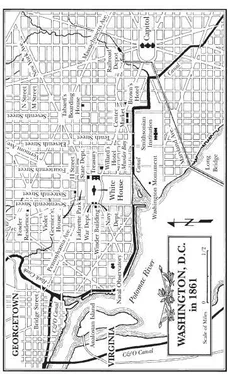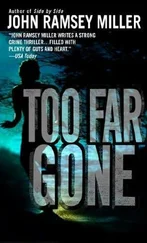John Miller - The First Assassin
Здесь есть возможность читать онлайн «John Miller - The First Assassin» весь текст электронной книги совершенно бесплатно (целиком полную версию без сокращений). В некоторых случаях можно слушать аудио, скачать через торрент в формате fb2 и присутствует краткое содержание. Жанр: Исторический детектив, на английском языке. Описание произведения, (предисловие) а так же отзывы посетителей доступны на портале библиотеки ЛибКат.
- Название:The First Assassin
- Автор:
- Жанр:
- Год:неизвестен
- ISBN:нет данных
- Рейтинг книги:3 / 5. Голосов: 1
-
Избранное:Добавить в избранное
- Отзывы:
-
Ваша оценка:
- 60
- 1
- 2
- 3
- 4
- 5
The First Assassin: краткое содержание, описание и аннотация
Предлагаем к чтению аннотацию, описание, краткое содержание или предисловие (зависит от того, что написал сам автор книги «The First Assassin»). Если вы не нашли необходимую информацию о книге — напишите в комментариях, мы постараемся отыскать её.
The First Assassin — читать онлайн бесплатно полную книгу (весь текст) целиком
Ниже представлен текст книги, разбитый по страницам. Система сохранения места последней прочитанной страницы, позволяет с удобством читать онлайн бесплатно книгу «The First Assassin», без необходимости каждый раз заново искать на чём Вы остановились. Поставьте закладку, и сможете в любой момент перейти на страницу, на которой закончили чтение.
Интервал:
Закладка:
This realization filled Portia with a powerful sense of relief. Slaves often left their plantations on Sunday to visit friends and relatives who lived nearby. She thought she might pass as one of these innocent travelers. Of course, slaves who left their plantations even on a Sunday carried passes signed by their masters or overseers, and Portia had no pass. Just about any white person could demand that she present one. For the first time in many hours, Portia tried to make a plan. She did not know what lay ahead, and she feared that pursuers were somewhere behind her with their hounds. The possibility of curling into a bed of leaves and sleeping through the day tempted her. Yet this was not necessarily the safest course.
She sat down in a spot where she could keep a watch on the road and the plantation but where nobody was likely to see her. It felt good to get off her feet. She removed her shoes and noticed the blisters for the first time. If she walked much further, she thought, they might force her to stop.
Portia reached into her pocket and removed the photograph her grandfather had given her. Was Joe’s life worth this little picture? The thought of Joe brought tears to her eyes. She had managed not to think of him much since he had told her to leave. Now the memory of him closing his eyes forever made her shake with sorrow. Then she welled up with anger. Holding the photograph in her hands, she thought about ripping it into pieces. She imagined herself doing it.
Then she remembered the last thing Joe had said to her: “Go.” He knew the stakes. He knew the risks. He did not want comfort as he drew his final breaths. He did not want her to make a heroic last stand. He wanted her to go on. She had started this journey because of her grandfather. Now she would finish it because of Joe.
Portia was still undecided about whether to walk in the daylight or to get some rest when she heard the sound of a horse-drawn wagon rolling down the road. It came into view through the trees a moment later. A black man drove it, pulling a load of burlap sacks. He was probably a slave on his way to Charleston for the Monday market. She wondered how long it would take him to get there. How nice it would be to hitch a ride. She could get to the city without maiming her feet any further and perhaps even shut her eyes for a spell.
Portia never understood why she did it-the chance of being noticed seemed too great-but she rose from her spot as the wagon passed. A moment later, she fell in behind the cart, placed her hand on its back end, and kept pace for twenty or thirty feet. When it hit a pothole and bounced, Portia threw herself onto the pile of bags. She studied the driver. He did not move. The wagon continued on its leisurely course. Portia wiggled beneath a few of the bags, which were full of rice. She adjusted several of them and settled into a hiding spot that was not exactly comfortable, but it would do. Her aching feet felt better almost right away. And then she closed her eyes.
Walking through Lafayette Park in the morning sun, Mazorca decided there would be nothing tentative about his visit to the president’s house. He would stride up the driveway, pass the guards under the portico, and enter the building like someone with legitimate business there. If anybody asked, he would say that he was seeking an appointment with the president. That was even sort of true.
Scouting the White House on the previous day had convinced him he could get in without raising suspicions. Perhaps the security on the inside was tighter than what he had seen on the outside. Perhaps he would have access only to a couple of the big rooms on the first floor. There was one way to find out. He had many basic decisions to make over the next few days-choices about when, where, and how. What he needed now was information to help him make these decisions. These details could not be found in books or conversations.
As Mazorca crossed Pennsylvania Avenue toward the White House, he watched a group of Jim Lane’s men assemble on the front lawn. There were a good number of them, and they looked like a ragged bunch as they tried to herd themselves into neat rows and columns. Military drill was obviously not a specialty. These were men to have on your side in the chaos of a barroom brawl, thought Mazorca, but not necessarily on a battlefield, where preserving order was vital.
He did not pause to observe them as he neared the house. Two guards stood under the portico again, but they were more interested in watching the spectacle on the lawn than the approaching visitor. Neither took his eyes off Lane’s men, and it was not until Mazorca had passed through the short gate and grabbed the knob on the front door that one soldier bothered to give him a quick glance. Mazorca was ready to explain himself when the bluecoat delivered a slight nod and turned his attention back to the lawn.
“A fine spot we’ll be in if we’re forced to stand by these men under fire,” he said with the slight brogue of an Irish immigrant.
Mazorca almost replied, but then he realized the guard was not talking to him.
“Say what you will, O’Malley, but these roughnecks are better than nothing-and right now they’re all we’ve got,” remarked the other guard.
They were letting him pass. Mazorca did not hear the rest of the conversation. Instead, he pushed the front door open and stepped into the White House.
He found himself in a foyer stocked with plain furnishings and badly in need of a paint job. A small chandelier drooped down from the ceiling. Through a glass screen held in place by an iron frame, this entranceway merged into long hall that ran left and right. A soldier sat on a wood bench against one of the walls. His eyes were closed.
Mazorca entered the hallway and turned to his right. He knew the East Room, presently occupied by Lane’s men, was located in the opposite direction. He saw a grand staircase at the west end of the hall. At the foot of the steps stood three well-dressed ladies listening to a man conclude a short lecture.
“Does anybody have a question?” asked the man.
“Let’s move on, Senator,” replied one of the ladies. “I’m anxious to see the portrait you mentioned earlier.”
“Then we shall continue our tour in the State Dining Room.”
With that, the little group filed into a room just to the left of the staircase. When they were out of sight, Mazorca reached the base of the steps and peered into the room they had entered.
He was surprised at its small size, perhaps thirty feet by twenty-five feet. An elegant table with fourteen chairs sat in the middle. Mazorca wondered if the president ever entertained more than a few diplomats, cabinet members, and congressmen at one time. He had thought about this dilemma only for a moment when the senator, standing before a fireplace, began a new speech.
“And here it is, above the mantel: the famous painting of our first president, by the extraordinary Gilbert Stuart.”
The picture was almost life-sized, and it showed a white-haired, red-cheeked George Washington dressed almost entirely in black. His face was expressionless. He held a sword in his left hand, and his right one appeared to beckon.
“You all know the story,” said the senator. “As the British marched on our capital almost half a century ago, the brave Dolley Madison refused to leave her mansion until she received assurances that this portrait would not be left behind. When unscrewing it from the wall took too long, she ordered the frame broken and the canvas removed. This heroic little woman got away just in time-and she saved a national artistic treasure from redcoats who would have been happy to see it swallowed in flames.”
One of his listeners let out a sharp gasp. Mazorca turned and walked away. At the opposite end of the hallway lay the East Room, and he made for it. He passed by a few closed doors on his right. On his left, he went by the entranceway where he had come into the building, and then a small staircase leading upward.
Читать дальшеИнтервал:
Закладка:
Похожие книги на «The First Assassin»
Представляем Вашему вниманию похожие книги на «The First Assassin» списком для выбора. Мы отобрали схожую по названию и смыслу литературу в надежде предоставить читателям больше вариантов отыскать новые, интересные, ещё непрочитанные произведения.
Обсуждение, отзывы о книге «The First Assassin» и просто собственные мнения читателей. Оставьте ваши комментарии, напишите, что Вы думаете о произведении, его смысле или главных героях. Укажите что конкретно понравилось, а что нет, и почему Вы так считаете.












